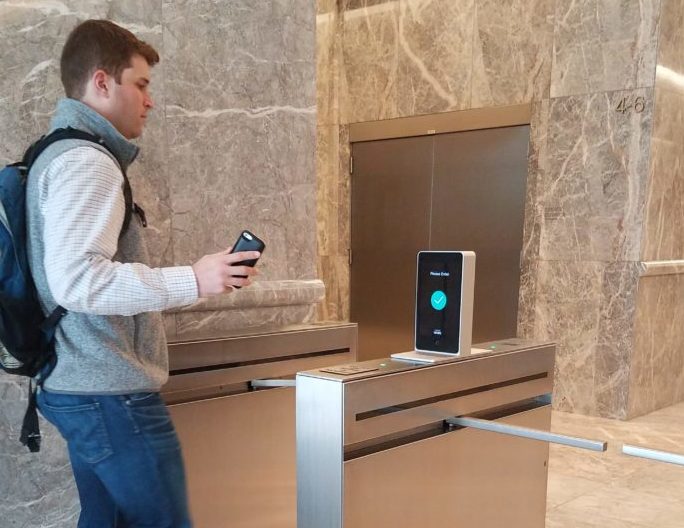Imagine having sensors that could detect water leaks in your building. Or using your smartphone as a key to your office. Or shopping for an apartment by checking out prospects with a virtual-reality headset. All of these are examples of how technology is coming to real estate. You’ve probably already heard of “EdTech” (for schools) and “FinTech” (for finance). Now comes “ReTech,” which promises to make buildings smarter, safer, thriftier, and even more smartly furnished.
Five entrepreneurs in the field pitched their new offerings this week at the Williamsburg Hotel, the first of a series of quarterly ReTech demos hosted by the real-estate development firm Totem and a rotating cast of partners. Tucker Reed, a principal in Totem, suggested that tech could bring the biggest changes since the installation of the first public elevator by Elisha Otis in 1874. Smart buildings, he said, will be part of “the everyday application of technological overlays and innovative services that are about to become integrated into every aspect of our lives.”
For landlords and developers, the three big reasons to invest in tech are to save money on energy and maintenance, to boost productivity, and to increase tenant satisfaction, said Ryan Baxter, a vice president at the Real Estate Board of New York. While real estate represents a huge portion of all assets, Baxter noted, investment in tech to improve real-estate assets has been relatively tiny compared with other tech. “It’s finally ReTech’s turn,” he said.
The cost of ReTech has fallen enough that it’s not just for big buildings; smaller operators can afford upgrades that can make a difference to customers. But building owners need to be discriminating in how they dive into new tech since it develops so quickly, Peter Lawrence, principal owner of Williamsburg’s Wythe Hotel, told The Bridge. “The tech has to line up with the rest of the things you’re doing, the story you’re telling.” (At the Wythe, that means radiant heated floors in all the guest rooms.) Above all, the tech has to be highly customer-friendly. “Technology in your home is very different from the technology in your hotel,” said Lawrence. “If it doesn’t work in four seconds, it’s a problem.”
